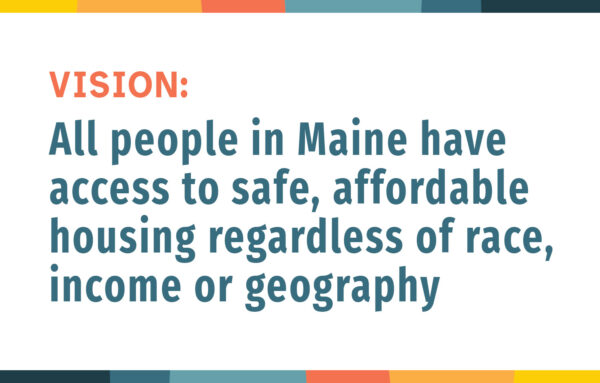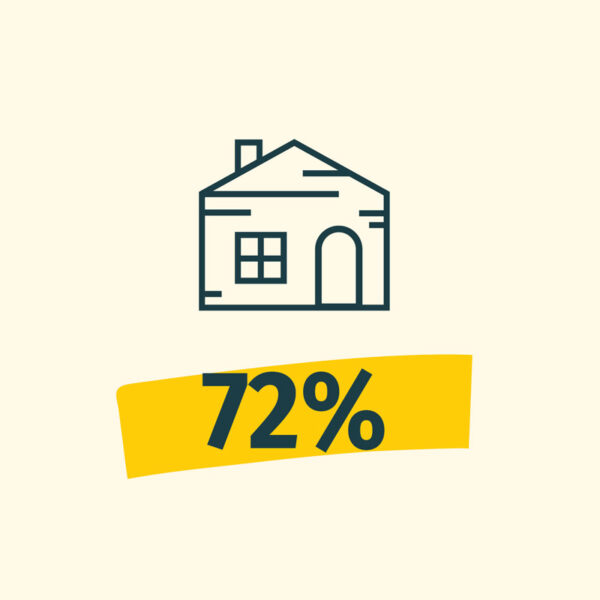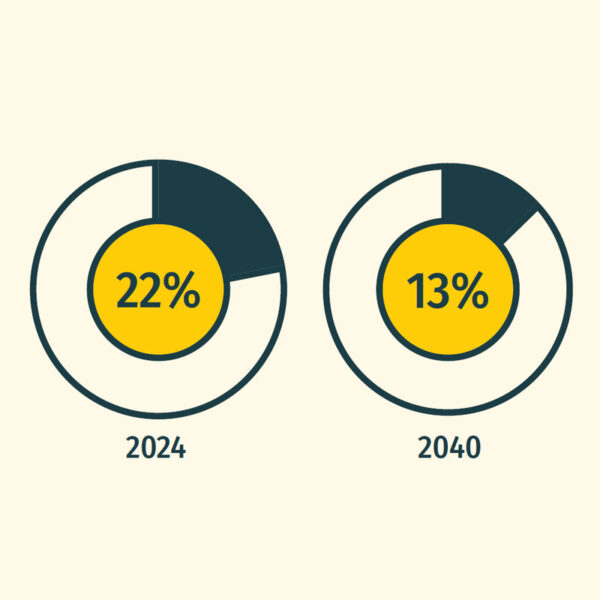2023-2024 IMPACT REPORT
Building Stability
Fair Tide develops affordable, permanent housing for individuals and families experiencing homelessness. It owns a five-unit building and is developing two new housing projects in Kittery. Fair Trade advocates at the local and state level for policies and programs that facilitate this work. Fair Tide photo
 Consider the lobsterman, whose workday begins at 4 a.m. But housing along the coast is scarce and expensive, so their day truly begins when the alarm goes off at 2 a.m. This gives just enough time for coffee and the 45–mile-drive from their home in a neighboring county to their workplace. This increases wear-and-tear on vehicles and fuel costs and keeps them away from their families.
Consider the lobsterman, whose workday begins at 4 a.m. But housing along the coast is scarce and expensive, so their day truly begins when the alarm goes off at 2 a.m. This gives just enough time for coffee and the 45–mile-drive from their home in a neighboring county to their workplace. This increases wear-and-tear on vehicles and fuel costs and keeps them away from their families.
Unfortunately, this scenario is common for workers in myriad industries in all corners of Maine. The housing crisis in Maine, and across the country, is one of supply and affordability. The combination of increased housing prices and a lack of inventory impacts workers, families and children, who all need and deserve stable living conditions to thrive.
MaineCF is committed to safe, affordable housing solutions for all Maine people. Solving the housing crisis requires many strategies including increased production, preservation of existing housing through home repair and renter protections. These and other complex solutions will require partnerships and collaboration among developers, nonprofits, businesses, federal, state and local governments and agencies.
For those looking for rental housing, leases are hard to come by. In 2022, just 1.6% of rental units in the state were unoccupied. For those with housing, nearly half of Maine residents are cost burdened – meaning more than 30% of their household income goes to rent or mortgages. Newly released census data show that Maine had one of the highest increases in the share of cost-burdened renters, increasing from 44% to 49%.
Current home prices, which increased dramatically since 2020, are much too high for the average Maine household to reasonably afford. The median household income of $68,316 is not enough in a state where the income needed to purchase a median-priced home is more than $100,000.
The housing shortage not only impacts current Maine residents, but also drives away potential workers who need housing to accept a job opportunity. The state needs as many as 84,300 new homes within the next seven years to meet demand, according to a 2023 study by Maine Housing, the Governor’s Office of Policy Innovation and the Future and Maine Department of Economic & Community Development. Aroostook and Washington counties will need to increase their housing production at a much higher rate than other counties to reach goals set by the state.
Maine has been successful in bringing federal funding for energy efficiency, but navigating different funding streams is complex. MaineCF recently supported a housing and energy summit with statewide housing practitioners to share information on federal funding opportunities to include energy efficiency. Increased communication, learning and networking are critical to achieving the state’s ambitious housing goals.
In addition to a housing shortage, Maine has the eighth-oldest housing stock in the nation, with 23% homes built before 1940. This leads to homes in disrepair either sitting vacant or being torn down. Investments in home repair allow people to remain in their homes, instead of looking for housing in a difficult market.
The housing crisis disproportionately affects people with low incomes, older people, people of color and Wabanaki citizens. Data and research on these disparities and housing needs across the state are needed to create equitable solutions. MaineCF is committed to centering equity as we work with partners to address the need for safe, affordable housing in Maine.
"Addressing Maine’s housing crisis requires the engagement of all of us. Residents in towns of all sizes, elected officials, employers, nonprofits and funders."
- Laura Mitchell, executive director, Maine Affordable Housing Coalition

72% of Maine's residents are unable to afford a median-priced home.

49% of renters are cost-burdened.

Home ownership rates among Black people in Maine are predicted to decrease from 22% to 13% by 2040.






